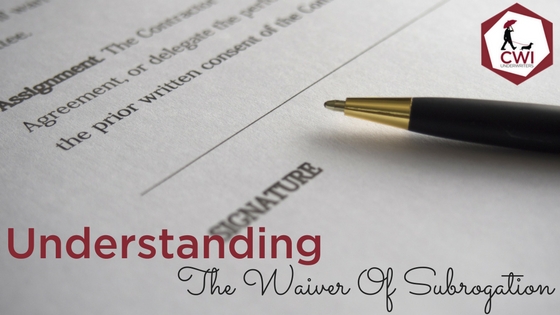Understanding The Waiver of Subrogation
The regular review of every contract you sign is an important risk management task. Subrogation is a basic insurance concept used in insurance contracts. If a loss occurs, it typically happens through someone’s negligence.
In general, the negligent or “at fault” party is liable for the cost of the loss. Your insurance carrier can then choose to sue the at-fault party to recover the amount of a claim they paid for you in a process known as subrogation.
When a waiver of subrogation is required in a contract, it means you are waiving your insurance company’s right to subrogate against another party. Most commonly the party you are under contract with. Most policy contracts, except for workers’ compensation, allow you to waive your rights of subrogation if done in writing and prior to loss.
Often an endorsement is added specifically referring to the exact contract as a means of clarification.
The Value of Waiver of Subrogation Clauses
A waiver of subrogation clause is placed in a contract to minimize lawsuits and claims between the parties. The risk, once assigned to the insurers by the parties, is determined to stop there, without allowing the insurer to seek costs from a third party.
This guarantees that if a loss occurs, the owner’s insurance pays the claim and the proceeds can be used to fund the cost of repairs without determining who was at fault. Without a waiver of subrogation, litigation or arbitration is frequently needed to determine whose fault caused a loss, which can lead to long and costly delays.
Reviewing Contracts
It’s important that all contractual language mirrors your policy. As your insurance partner, we are committed to helping you understand how your policy language impacts your contractual risks.



